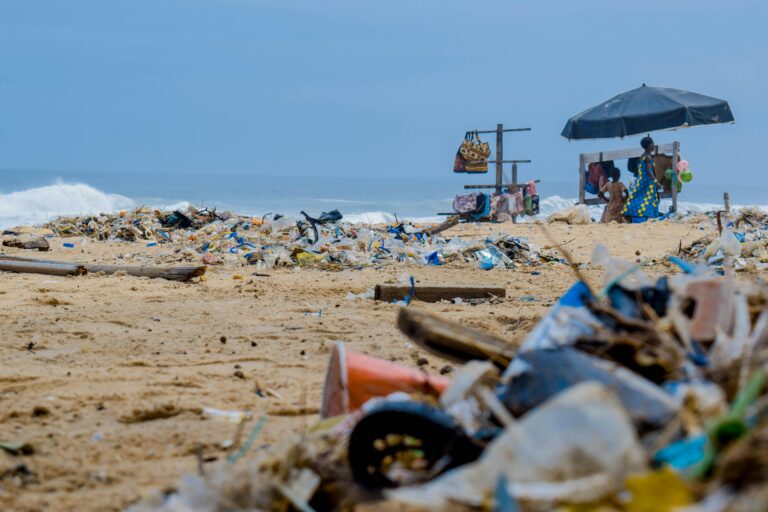
COURSE BACKGROUND
Water is at the center of climate change impacts, influencing ecosystems, agriculture, industry, and human livelihoods. Climate change is intensifying the water crisis globally, leading to extreme weather events such as floods, droughts, sea level rise, and water scarcity. As temperatures rise, changing precipitation patterns and declining water quality threaten sustainable development, food security, and public health.
This course, offered by the Environmental Capacities and Sustainability (ECAS) Institute, provides a comprehensive understanding of the relationship between climate change and water resources. It covers the scientific basis of climate impacts on water, adaptation and mitigation strategies, water governance, and sustainable water management approaches. Participants will explore policy frameworks, technological innovations, and case studies to develop effective solutions for water security and climate resilience.
Through interactive training, expert insights, and practical case studies, participants will gain the knowledge and skills needed to address water-related challenges in a changing climate and contribute to sustainable water management at local, national, and global levels.
COURSE OBJECTIVES OF THE TRAINING
By the end of the course, participants will:
- Understand the interconnection between climate change and water systems at global, regional, and local levels.
- Analyze climate-induced water challenges such as floods, droughts, and sea-level rise.
- Explore water management and adaptation strategies to enhance resilience.
- Examine climate policies, governance mechanisms, and financing for water sustainability.
- Learn about innovative solutions and technologies for climate-resilient water management.
- Strengthen decision-making and policy development for water security in climate-sensitive regions.
WHAT YOU WILL LEARN
Participants will gain knowledge and practical skills in:
- Climate change effects on freshwater resources and ecosystems.
- Extreme weather events and their impact on water availability.
- Water scarcity, quality, and security challenges.
- Adaptation strategies for managing climate-induced water risks.
- Integrated water resource management (IWRM) and climate resilience.
- Sustainable water governance and policy frameworks.
- Technologies for water conservation and efficiency.
- Case studies on climate-resilient water management.
DURATION AND PROGRAM
TARGET PARTICIPANTS
This course is designed for water resource managers, environmental planners, policymakers, engineers, researchers, climate change specialists, and professionals involved in water governance, climate adaptation, and sustainable development.
It is also beneficial for government agencies, NGOs, international organizations, private sector leaders, and community-based groups working on water security, disaster risk reduction, and climate resilience initiatives.
TRAINING MODULES
| No | Module | Details | |
| Introduction to Climate Change and Water Resources |
| ||
| Climate Change and Water Scarcity |
| ||
| Extreme Weather Events and Water-Related Disasters |
| ||
| Integrated Water Resource Management (IWRM) and Climate Resilience |
| ||
| Water Governance and Policy Responses to Climate Change |
| ||
| Sustainable Water Supply and Sanitation in a Changing Climate |
| ||
| Innovative Technologies for Water and Climate Adaptation |
| ||
| Case Studies and Practical Approaches |
| ||
TRAINING STYLE
This course follows a dynamic, interactive, and practical training approach, combining expert presentations, real-world case studies, hands-on exercises, and group discussions. Participants will engage in scenario-based learning, policy simulations, and field applications (where applicable) to strengthen their understanding of climate-resilient water management strategies.
The course also incorporates peer-to-peer learning, networking sessions, and collaborative problem-solving to enhance practical skills and enable participants to apply climate and water solutions effectively in their respective fields.
9. GENERAL NOTES
- Training manuals and additional reference materials are provided to the participants.
- Upon successful completion of this course, participants will be issued with a certificate.
- We can also do this as a tailor-made course to meet organization-wide needs. Contact us to find out more: info@ecasiafrica.org.
- Payment should be sent to our bank account before the start of training and proof of payment sent to: info@ecasiafrica.org.
ABOUT ECAS INSTITUTE
The ECAS Institute designs and delivers independent and targeted training, research, and consulting services. Our work focusses on climate change and resilience building, carbon markets, renewable energy, nature-based solution, biodiversity conservation, agriculture and food systems, We are located in Nairobi Kenya and work across the African region. We have implemented training and research assignments in Kenya, Tanzania, Uganda, South Sudan, Somalia, Malawi, Rwanda, Congo, and South Africa. Globally, we have supported our partners from the UK, Denmark, Italy, Sweden, Germany, and USA.

